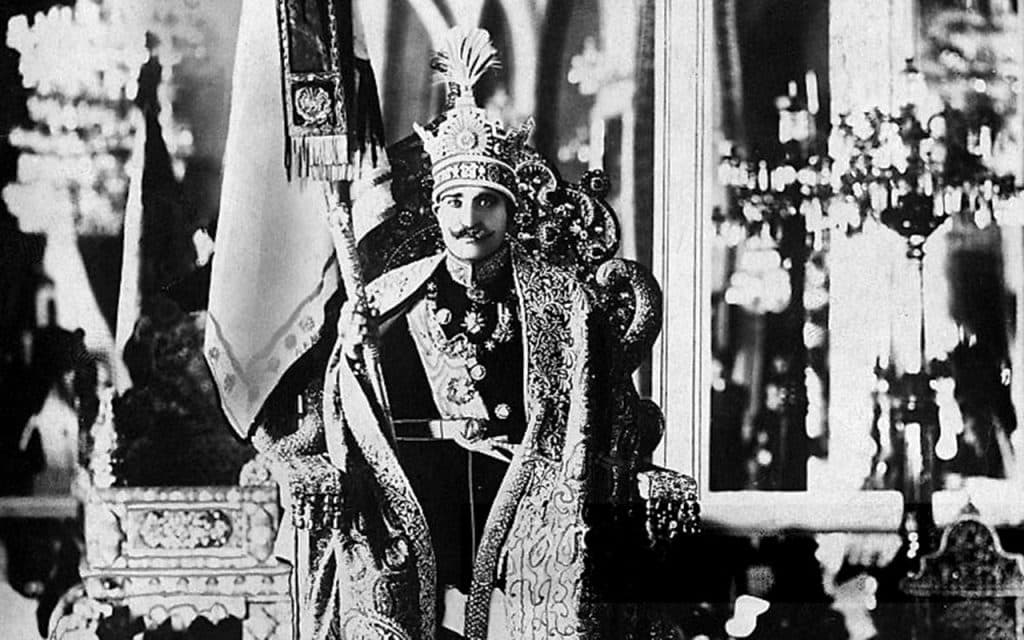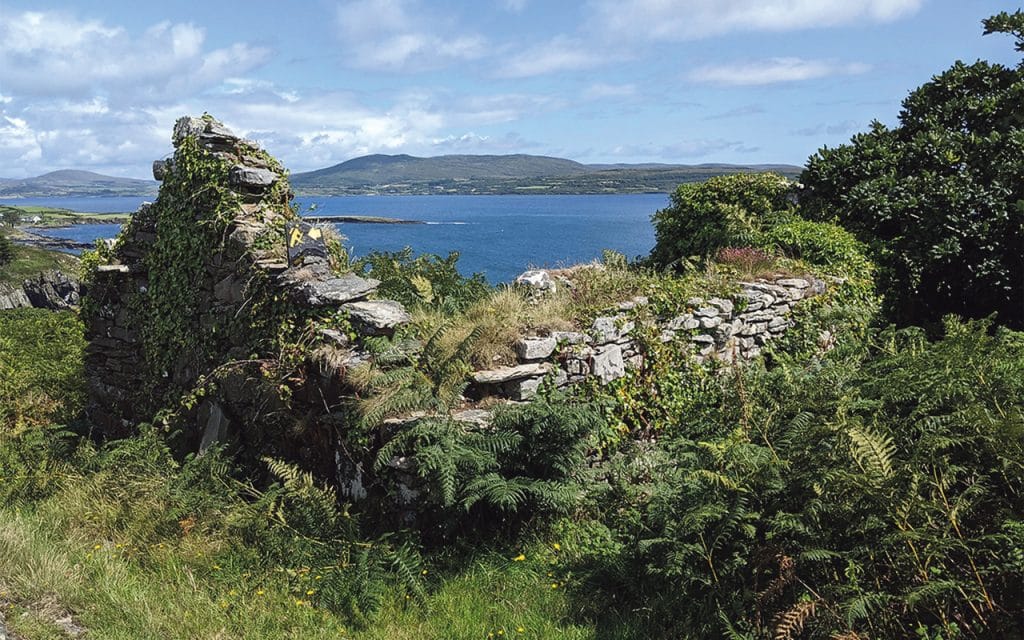Iran is headline news right now. By the time this article goes to print, the incessant bombing of Tehran and its ten million occupants, by Israel, could be over, or have boiled into a war of greater dimensions. Both the USA and Israel see Iran as an evil country that must be brought to hand. The brain, as multifaceted as it is, has quite a simple way of dealing with the massive amount of information we encounter on a daily basis. It often catalogues this information into neat categories, which helps us store, remember, and even understand complex situations. The trouble with this ‘categorisation process’ is that it can lead to over-simplification and superficial understanding of events.
Politics and history often works that way. We tend to label, for example, the UK, USA, Russia or Iran, as either good or bad, in black or white. In nearly all cases there are multifactorial reasons why countries behave accordingly in any given geopolitical environment. Is Iran the malignant force, the trouble-maker, the bad guy? Iran casts a wide net. It has funded military equipment to Hamas, the Houthis Rebels in Yemen and Hezbollah in Lebanon; and it also engages in proxy wars with the Saudi’s (no angles themselves!) and is aligned with Putin’s Russia. There is popular and political support for Palestinians in Ireland but that is not the same thing as supporting weaponised militias who use an armed struggle to attain their goals. Throw in Iran’s human rights record and treatment of women and it would take a brave lawyer to represent them in a court of public opinion. But before we judge too harshly, it is always a good idea to ask: does the government and regime in any given country have popular and universal support of its own people? And if not, who becomes the victim when sanctions, travel bans and bombing raids rain down? As always, it’s the civilian population.
I think it’s fair to say that when our brains begin our ‘categorisation’ process, middle eastern countries are immediately tarnished by the fact that they are heavily, if not totally, influenced by religion in their political system. In an ever-growing secular Europe that moved away from this model of governance, we tend to judge them by this metric. Lest us not forget that, well within our living memory in Ireland, is a time when religion was heavily intertwined with and influential over law, education, the constitution, marriage and so on. Even if one does not share a belief in that type of system, there are millions in the world who want their religion to be the cornerstone of how their country is run. The problem arises when it is imposed on a country. Those who do not believe or want to engage in it, are disadvantaged or, in some cases, punished. Iran is one such place. Israel, despite its veneer of secularism, has proven in the last year to be religiously, ideologically driven, given that many in government and civil society believe the war in Gaza and abuses in the West Bank can be justified, based on their biblical history. Do these countries face the same level of scrutiny?
In June, Israel started a war against Iran, targeting areas in Tehran, a city of ten million people. Their model is similar to their campaign in Gaza. Strike first, ask questions later and, if civilians get killed, well, don’t say we didn’t warn you. The Israelis justify it on the grounds that they believe Iran is on the verge of creating nuclear capability, an assertion that has not been upheld by the International Atomic Energy Agency watchdog. Israel, in spite of the Nuclear Non-Proliferation Treaty – an international treaty set up in 1968 to prevent the spread of nuclear weapons and weapons technology and achieve nuclear disarmament – has acquired these weapons, and the USA is armed to the teeth. Do they face the same level of scrutiny? Good guy’s can do it, but not bad guy’s, right? Israel also points out that the regime (the people of Iran by association) have called for the destruction of the nation of Israel. Is it rhetoric, an idle threat, or a military aim of the Iranian regime? We don’t know for sure, but what we do know is that Israel is destroying large swathes of Iran in a pre-emptive strike. So I ask again, do they face the same levels of scrutiny? Probably not, because they position themselves as the ‘good guys’, western-leaning, democratic, righteous.
Iran has a president, but its power is centred around the ‘supreme leader’, Ayatollah Ali Khamenei, a religious figure, who has control over the government, judiciary and military. Because of his fundamentalist beliefs, and that of his supporters, his control over the strings of governance has led to an uncompromising and intolerant system, where there is no room for dissenting voices or oxygen for compromise and reform. There is a level of fundamentalism that, no doubt, is intolerant of other religions, which includes a stand-off with Sunni Muslims, in countries such as Saudi Arabia, Iraq and Pakistan. His regime has been anti-semitic too. This fundamentalism did not simply happen, but was born out of colonial interference, military leaders, and despots, who ruled corruptly, sometimes under the banner of ‘democratic’ regimes. It’s therefore unsurprising that this would tarnish the democratic system of governance, as one that did not have the interests of the common people in mind. Religion offered unity and solace when all else failed. That is where we are at today.
In our western-centric world view, we forget that Iraq and Iran were the cradle of the civilised world. The state of Persia was the world’s first great power in 550 BC. Cyrus, the ruler of this state, ensured that his conquered territories remained economically productive while allowing freedom of religion, creating a prosperous and tolerant empire. In light of Israel’s attack on Iran today, it’s worth noting that Cyrus once allowed Jewish people in his empire to return to the region that is now modern-day Israel. In the centuries that followed, the Silk road connecting the East with the West – running from China to Europe, India, Africa and, at its central artery meandering through Persia – brought not only wealth, but information, language, cultural exchanges and interconnectivity, all which helped to develop Persia as a land of great lure, knowledge and mystique.
In both the great wars of the 20th century, Iran hoped to remain neutral. On both occasions, their sovereignty was compromised at the will of greater powers, whose interest did not lie in Iran or Persia but in their own self-interests. During WWI, the British, Turkish and Russians all schemed to invade Persia. The ‘good guys’ – the British – had eyes on protecting their oil fields (no less on Iranian soil!). They also looked to safeguard the Trans-Iranian railway that was a major transport hub for their black gold, which they had discovered and took control of in 1912. Oil, not coal, was now fuelling the Great War, and the British were determined to keep it, even if it meant violating the sovereign rights of another nation. Their control of transport hubs and food supplies led to parts of Persia enduring famine between 1917-1919. Russia, Britain’s war ally, had been promised control of an area of Persia with access to the straits that led to the Black Sea, thus giving Russia military access to the Mediterranean. But the ‘good guys’ won the war, so it was all worth it!

Enter the Shah, Reza Shah Pahlavi, in 1921: A military leader who deposed the old Qajar Dynasty and became Prime Minister and founder of modern day Iran. His reforms brought him into conflict with the religious clerics. Initially he played along with democracy, helping to install a new Prime Minister after the coup in ’21. Within four years, Reza would establish his own dynasty, one that would rule with much corruption supported by western powers, until the 1979 Iranian Revolution. His own son, Mohammad Reza, was overthrown by the clerical leader Khomeini and his supporters, creating the religious state that exists today, the ‘Islamic Republic of Iran’
There’s a lot more to it but one thing is for certain in life – you reap what you sow. The Iran I described at the beginning of the article is certainly part of the picture, but the path it has chosen has been shaped by over a century of Western bullying. I will continue to tease out the complexities of Iran in the second part of this article next month. Until then, look further than the easy soundbites about what defines a country, and ask yourself: who is doing the defining?



